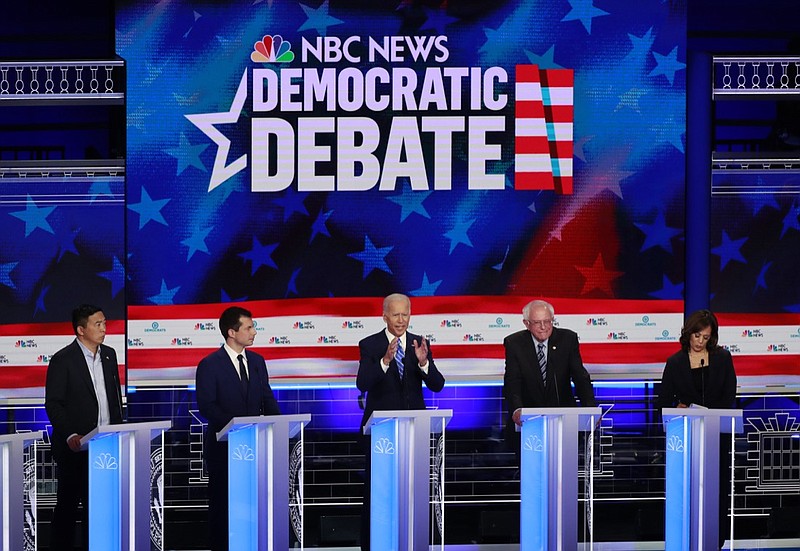What did you think of the bunch of socialists you just saw debating onstage?
Wait, you may protest, you didn't see any socialists up there. And you'd be right. The Democratic Party has clearly moved left in recent years, but none of the presidential candidates are anything close to being actual socialists - no, not even Bernie Sanders, whose embrace of the label is really more about branding ("I'm anti-establishment!") than substance.
Nobody in these debates wants government ownership of the means of production, which is what socialism used to mean. Most of the candidates are, instead, what Europeans would call "social democrats": advocates of a private-sector-driven economy, but with a stronger social safety net, enhanced bargaining power for workers and tighter regulation of corporate malfeasance. They want America to be more like Denmark, not more like Venezuela.
Leading Republicans, however, routinely describe Democrats, even those on the right of their party, as socialists. Indeed, all indications are that denunciations of Democrats' "socialist" agenda will be front and center in the general election campaign. And everyone in the news media accepts this as the normal state of affairs.
Which goes to show the extent to which Republican extremism has been accepted simply as a fact of life, barely worth mentioning.
To see what I mean, imagine the media firestorm, the screams about lost civility, we'd experience if any prominent Democrat described Republicans as a party of fascists, let alone if Democrats made that claim the centerpiece of their national campaign. And such an accusation would indeed be somewhat over the top - but it would be a lot closer to the truth than calling Democrats socialists.
The other day The New York Times published an op-ed that used analysis of party platforms to place U.S. political parties on a left-right spectrum along with their counterparts abroad. The study found that the Republican Party is far to the right of mainstream European conservative parties. It's even to the right of anti-immigrant parties like Britain's UKIP and France's National Rally.
True, this is just one study. But it matches up with lots of other evidence. Political scientists who use congressional votes to track ideology find that Republicans have moved drastically to the right over the past four decades, to the point where they are now more conservative than they were at the height of the Gilded Age.
One might even argue that the GOP stands out among the West's white nationalist parties for its exceptional willingness to crash right through the guardrails of democracy. Extreme gerrymandering, naked voter suppression and stripping power from offices the other party manages to win all the same - these practices seem if anything more prevalent here than in the failing democracies of Eastern Europe.
So it's really something to see Republicans trying to tar Democrats as un-American socialists. If they want to see a party that really has broken with fundamental American values, they should look in the mirror.
But that won't happen, of course. Whoever the Democrats nominate, Republicans will paint him or her as the second coming of Hugo Chávez. The only question is whether it will work.
It might not, or at least not as well as in the past. By spending decades calling everything that might improve Americans' lives "socialist," Republicans have squandered much of the accusation's force.
A lot will depend on how the news media handle dishonest attacks. Will we keep seeing headlines that repeat false claims ("Trump Says Democrats Will Ban Hamburgers"), with the information that the claim is false buried deep inside the article? Will we get coverage of actual policy proposals, as opposed to horse-race analysis that only asks how those proposals seem to be playing?
I guess we'll soon find out.
The New York Times
